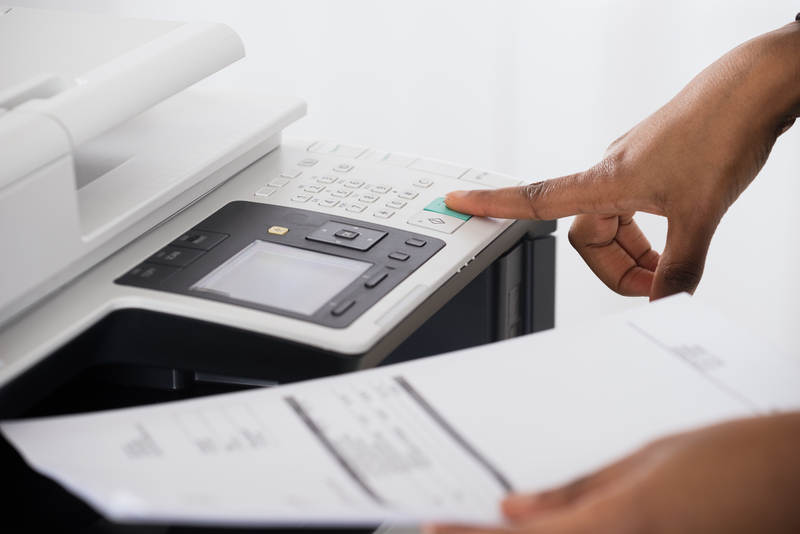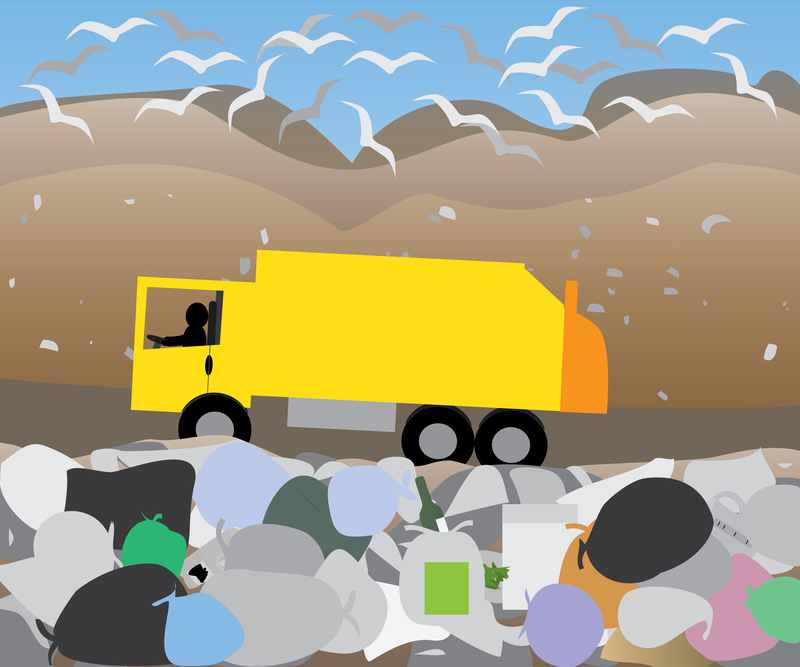Getting Rid of Pots and Pans While Protecting the Planet
Are you stuck with a collection of old pots and pans gathering dust in your kitchen? Before tossing them into the trash, consider eco-friendly options that not only clear your space but also safeguard the environment. In today's world, sustainability is more than a buzzword--it's a necessity. Discover how to dispose of cookware responsibly, reusing, recycling, and even donating those old pots and pans with a green conscience.
Why It's Important to Dispose of Cookware Responsibly
Improper disposal of kitchenware like old pots and pans can harm the planet in various ways. From hazardous chemicals leaching into landfills to the wasteful use of non-renewable resources, the impact is real. By choosing sustainable methods to discard your cookware, you help conserve resources, reduce landfill crowding, and promote a circular economy.
Environmental Impact of Throwing Away Pots and Pans
- Landfill Overflow: Millions of tons of metal and non-biodegradable materials pile up in landfills each year. Cookware that ends up here can last for centuries.
- Pollution and Toxins: Non-stick coatings often contain chemicals like PFOA, which can leach into soil and water if not disposed of correctly.
- Resource Waste: Metals and plastics take significant energy and raw materials to produce. Discarding them wastes valuable resources that could be reused.

Assessing the Condition of Your Old Cookware
Before deciding how to get rid of unwanted pots and pans, evaluate their condition.
- If they're still functional--with handles intact and little surface damage--donating or selling may be the best option.
- For cookware with significant damage, or nonstick pans with scratched coatings, focus on recycling.
- Creative individuals may find new upcycling uses for damaged cookware around the home or garden.
Eco-Friendly Ways to Get Rid of Pots and Pans
1. Donate Usable Pots and Pans
If your cookware is still in good shape, donating pots and pans is the most sustainable option. Many local charities, shelters, and thrift shops gladly accept kitchen items to help families in need. Not only do you keep items out of landfill, but you also help others set up a home for less.
- Charity Shops: Goodwill, Salvation Army, and community thrift stores are great places to donate gently used cookware.
- Local Shelters: Homeless and women's shelters often gratefully accept kitchen donations.
- Online Platforms: Use apps like Freecycle, Facebook Marketplace, or Buy Nothing groups to offer items to neighbors for free.
2. Selling Still-Good Cookware
Selling your old pots and pans is another eco-conscious way to clean out your kitchen. Someone looking to save money or equip a first kitchen may gratefully buy used items.
- Garage Sales or Yard Sales: Pots and pans are popular items at local sales.
- Online Marketplaces: List on Craigslist, eBay, OfferUp, or Facebook Marketplace.
- Specialty Consignment Stores: Some stores focus on home goods and may accept high-quality brands.
3. Recycle Old Pots and Pans
Many types of cookware can be recycled, especially if made from metal such as aluminum, stainless steel, or cast iron.
- Scrap Metal Yards: Local scrap yards may pay you for old metal cookware. Remove non-metal parts, like plastic handles, first.
- Curbside Recycling: Some cities accept certain types of pots and pans in their curbside bins, but always check your town's recycling guidelines.
- Municipal Recycling Centers: Drop off cookware at the waste management facility if it's allowed. Ask ahead for restrictions on nonstick or coated pans.
Tip: Not all nonstick pans are recyclable due to the coatings. Check with your local recycler for instructions!
4. Upcycle Your Cookware for Creative Uses
Unleash your creativity by repurposing old pots and pans around your home or garden. Here are some imaginative upcycling ideas:
- Planters: Turn old pots into herb, flower, or succulent planters.
- Birdbaths or Feeders: Large lids and shallow pans make excellent outdoor birdbaths or feeders.
- Organizers: Use pans to hold office supplies, tools, or craft materials.
- Wall Decor: Paint handles and hang lightweight pans for quirky vintage art.
- Serving Trays: Cast iron skillets (with cleaned surfaces) can become rustic serving trays.
Dealing with Nonstick Pans and Toxic Coatings
Nonstick pans, especially older ones, often contain chemicals like PTFE and PFOA, which must be handled with care. Most recycling centers will not accept these unless you remove the coating. Here's what you can do:
- Contact Manufacturers: Some brands offer take-back programs for their cookware, ensuring safe disposal or recycling.
- Specialty Recycling: Research local hazardous waste events or centers that accept nonstick cookware.
- Upcycle: If recycling isn't possible, consider upcycling as storage bins, gardening tools, or decor.
Pro Tip: If your pans are badly scratched or flaking, it's safest not to use them for food--even if you upcycle--keep them for non-food uses only!
How To Find the Right Recycling Option for Your Area
Recycling regulations vary depending on your state, city, and even neighborhood. Here's how to get started:
- Check Your City's Website: Search their recycling or waste management section for specifics on cookware disposal.
- Contact Local Scrap Yards: Ask about their requirements for accepting cookware and whether they pay for items like aluminum or steel.
- Use Online Search Tools: Tools like Earth911.com allow you to search by item and zip code for the right disposal or recycling sites.
- Call Before You Bring: Always reach out to confirm which types of pots, pans, and bakeware your local facility accepts.
Best Practices for Disposing of Specialty Cookware
Cast Iron Pans:
- Restore if Possible: Cast iron can almost always be restored! Consider re-seasoning and donating or selling.
- Recycle as Scrap Metal: If broken, take cast iron to a metal recycler, where it's melted down and reused.
Copper and Aluminum Pans:
- High Value at Scrap Yards: These fetch good money as scrap but must be free from wooden or plastic handles.
- Check for Lining: Some copper pans have tin or stainless linings. Remove non-metal components first.
Glass or Ceramic Cookware:
- Not for Curbside Recycling: Most glass bakeware and ceramic dishes are not accepted in standard recycling bins.
- Donation: If unchipped, donate to secondhand stores or give away online.
- Disposal: Otherwise, wrap safely and place in trash--but seek local alternatives like art supply donations first!
Benefits of Responsible Cookware Disposal
- Lowers Landfill Waste: Every pot and pan kept out of the landfill counts towards a cleaner planet.
- Promotes Recycling Industries: Your recycled cookware gets a new life as building materials, machinery, or even new cookware!
- Supports Communities: Donating usable items helps struggling families and nonprofit organizations.
- Inspires Others: By setting a green example, you encourage friends and family to dispose of kitchenware responsibly.
Sustainable Shopping: Choosing Eco-Friendly Cookware
After you've responsibly parted with your old pots and pans, consider investing in sustainable cookware alternatives:
- Materials to Choose: Stainless steel, cast iron, and carbon steel are highly durable, often recyclable, and can last decades.
- Avoid Toxic Coatings: Opt for ceramic or enamel finishes free of PTFE/PFOA.
- Buy Secondhand: Hunt for quality cookware in thrift and consignment shops to save money and prevent further waste.

Frequently Asked Questions About Cookware Disposal
Q: Can you put pots and pans in the recycling bin?A: Usually no--most municipal recycling programs don't accept cookware curbside, especially if it has plastic parts or nonstick coatings. Always check with your local provider.
Q: Are nonstick pans hazardous to recycle?
A: Yes--They often contain chemicals that require special handling. Separate and take to a designated hazardous waste center or inquire with the pan's manufacturer.
Q: What about donating scratched pans?
A: Gently-used metal pans can be donated, but avoid giving away scratched nonstick pans due to potential health risks for new users.
Q: Do scrap yards pay for old cookware?
A: Yes, especially for pure metal items like aluminum, copper, or cast iron. Prices vary depending on metal value and current market rates.
Summary: Clearing Out Cookware Without Harming the Environment
Getting rid of old pots and pans the green way isn't complicated. By assessing your items, choosing to donate, sell, recycle, or upcycle, and understanding local waste management rules, you can easily declutter while protecting the planet. Make conscious choices for disposing of cookware sustainably and inspire others in your community to do the same!
- Always explore donation or resale first.
- Check if your cookware is recyclable in your area.
- Upcycle items for creative reuse.
- Dispose of toxic nonstick materials through proper hazardous waste channels.
Let's transform how we think about getting rid of pots and pans--one green step at a time!